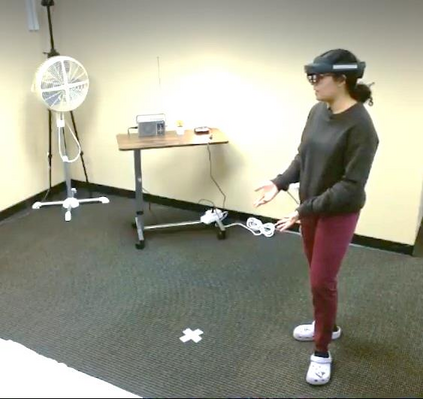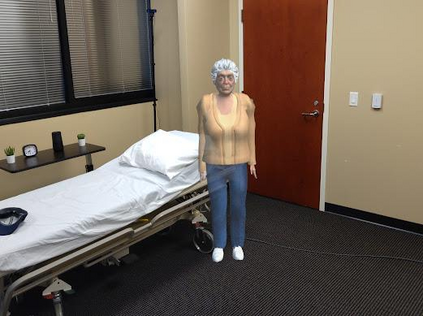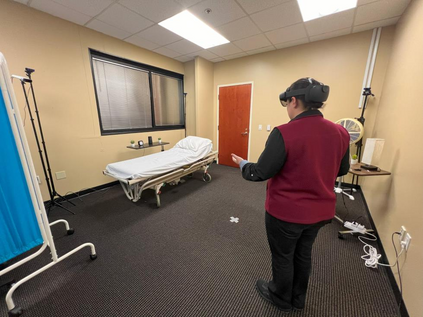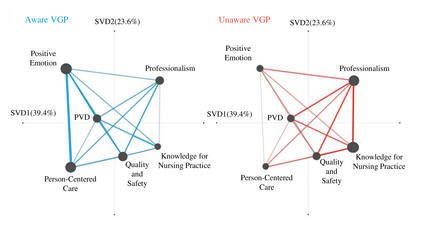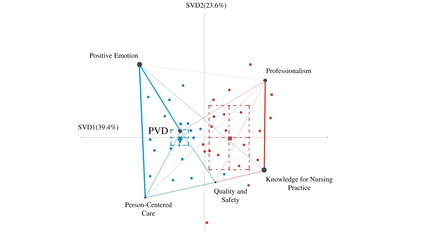The need to improve geriatric care quality presents a challenge that requires insights from stakeholders. While simulated trainings can boost competencies, extracting meaningful insights from these practices to enhance simulation effectiveness remains a challenge. In this study, we introduce Multimodal Epistemic Network Analysis (MENA), a novel framework for analyzing caregiver attitudes and emotions in an Augmented Reality setting and exploring how the awareness of a virtual geriatric patient (VGP) impacts these aspects. MENA enhances the capabilities of Epistemic Network Analysis by detecting positive emotions, enabling visualization and analysis of complex relationships between caregiving competencies and emotions in dynamic caregiving practices. The framework provides visual representations that demonstrate how participants provided more supportive care and engaged more effectively in person-centered caregiving with aware VGP. This method could be applicable in any setting that depends on dynamic interpersonal interactions, as it visualizes connections between key elements using network graphs and enables the direct comparison of multiple networks, thereby broadening its implications across various fields.
翻译:暂无翻译


